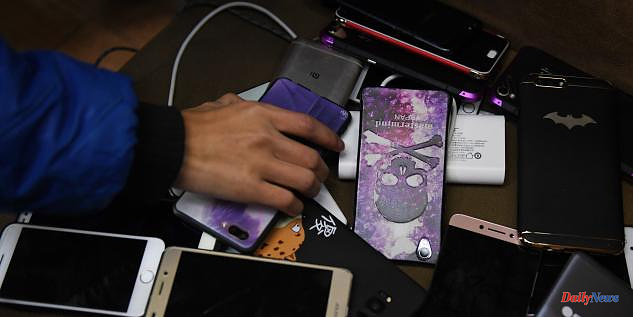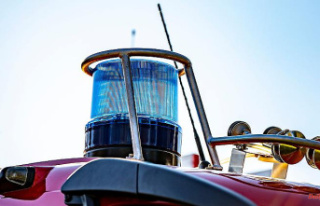It's time to say goodbye to incompatible chargers that clutter drawers. The agreement between MEPs and Member States on Tuesday, June 7, saw the EU impose a universal wired charger from 2024 for all smartphones, tablets and consoles. Apple was not happy about it.
To be sold in the EU, any manufacturer of cable-rechargeable devices, including mobile phones, tablets and e-readers, as well as headphones, digital cameras, portable consoles, speakers, and portable video games consoles, will need to have a USB-C port.
By spring 2026, all laptops will have to comply with the single charger requirement. After long negotiations, Tuesday's political agreement will be officially approved by the European Parliament (and the Council), which represents the states.
This text will also help to standardize wireless charging technologies in the future.
Parliament states that consumers will no longer have to purchase an additional charging device or cable for every device they buy. They will only need one charger for all of their small and medium-sized electronic devices.
This text stipulates that charging speeds be harmonised for devices that allow fast charging. This is to avoid it being limited by using a charger from a different manufacturer. Consumers will be better informed about the charging speed and will be able buy devices with or without a charger.
According to the European Commission, this regulation could help European consumers who spend more than 2.4 billion euro annually on chargers to save at least 250 millions euros each year. Nearly 1,000 tonnes could be saved from the waste of unused magazines each year, which is estimated at 11,000 tonnes.
The Commission launched this project in 2009. However, it was met with resistance by the industry for many years.
Over the years, however, the number and types of chargers available has decreased. They have now reduced to just three types of chargers from around 30 in 2009.
California-based Lightning claims to power more than a billion devices around the globe. The group has repeatedly opposed the EU text, claiming that it will "stifle invention" and leave the EU-subject to a choice "obsolete standards" - as well as cut off access from the rest.
Apple insists that by disqualifying certain smartphones and chargers currently in circulation, Brussels will "impose substantial losses on manufacturers", reduce consumer choice, and generate more electronic waste."
"Let's be clear: if Apple wants its products to be marketed in Europe, we will need to respect our rules (...). We must think about the environment," said Thierry Breton, Commissioner for the Internal Market.
ANEC, which protects consumers' rights in technology standards issues, welcomes a deal that "simplifies the maze of options currently available to consumers".
ANEC had previously regretted that the original project didn't concern wireless charging systems. However, the final agreement contains provisions for establishing a common standard within this niche. This will soon become the norm.
According to MEP Alex Agius Saliba, the adopted text "prepares future (...) so that we don't adopt legislation on technology that is already dying", (S).
As wireless technology advances, the Commission will be empowered to create "delegated Acts on the Interoperability of Charging Solutions", i.e. Regulations that can be directly applied without the need to submit to a vote by the Council or the European Parliament.












